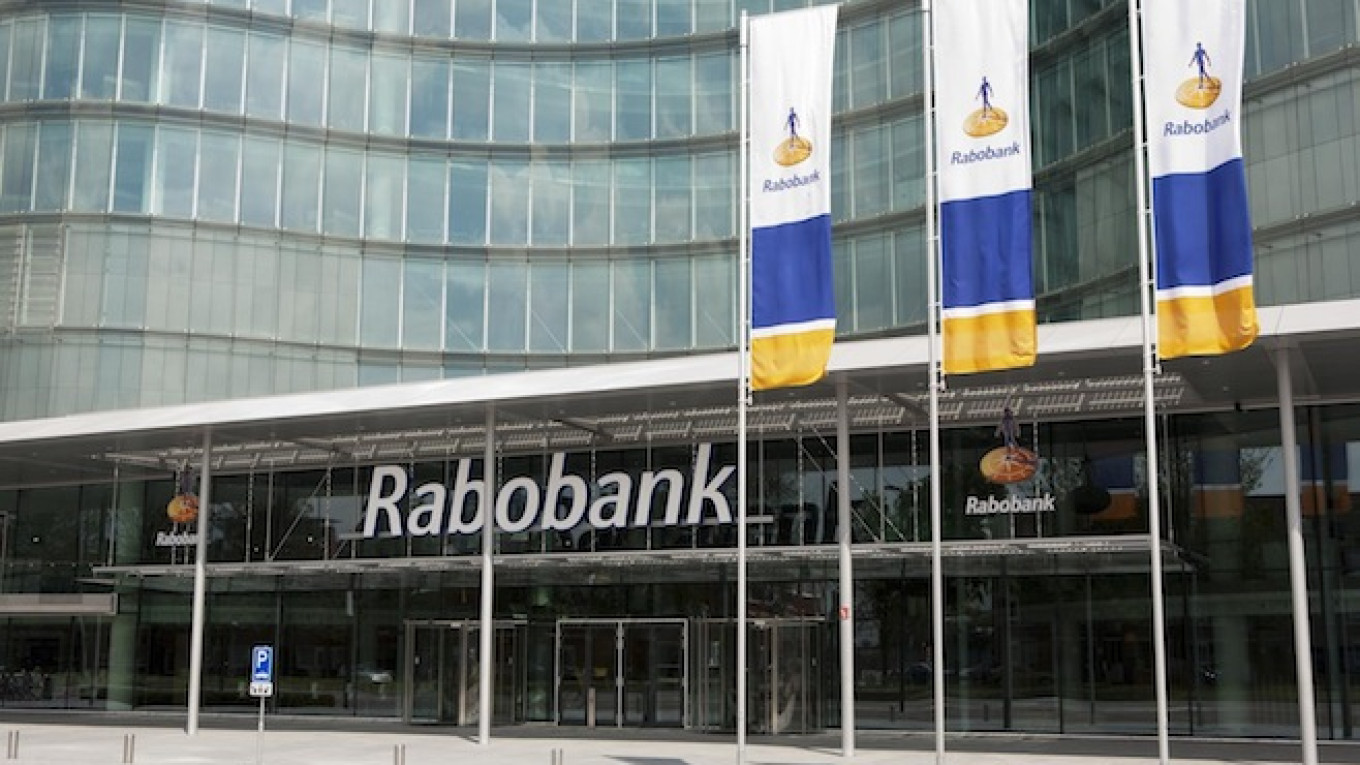Rabobank, the leading Dutch lender in the agriculture sector, said Thursday its direct exposure to Russian sanctions was limited but some of its clients were suffering big losses due to a ban on imports of fruit and vegetables.
While there are signs of economic recovery, the outlook for 2014 is uncertain, the bank said, partly due to the Ukraine crisis and the possible impact on the global economy.
Net profit slipped 3 percent to 1.1 billion euros ($1.4 billion) in the first half of 2014 due to a one-time 214 million euros charge for the nationalization of peer bank SNS Reaal.
After taking "considerable provisions" this year the number of non-performing loans is expected to fall thanks to the economic recovery, Rabobank chief financial officer Bert Bruggink told journalists.
But Rabobank said the trade conflict between the West and Russia over Ukraine, which had led to a series of sanctions and counter-sanctions, "represents an uncertain factor."
"Some additional uncertainty came in the last few weeks, mainly in the greenhouse sector, due to the Russian sanctions," Bruggink said. "We hope that this will not lead to additional losses, but at the moment it's hard to predict."
The "sanctions can have an adverse impact on a number of our business customers and may therefore also adversely affect Rabobank's result to a limited extent."
Rabobank is the largest lender in the Dutch farms sector, which had just started to benefit from an economic upswing, but were now taking "a severe hit" caused by price falls and the sanctions, he said.
The Dutch statistics office said this week the country's agriculture sector will suffer about 300 million euros in lost business, with Russia accounting for about 10 percent of all Dutch exports of vegetables, fruit and meat.
Another European bank with exposure in the agriculture sector is Austria's Raiffeisen Bank International, which said Thursday it expects "no significant impact" from the trade conflict with Moscow.
Property Slump Continues
Bruggink said that "the largest part of the economy in the Netherlands and elsewhere is doing better, with the clear exception of the real estate sector."
The bank took provisions of 1.2 billion euros of its real estate portfolio in the six-month period, he said and "we expect that trend to continue in the second half of the year."
With the Dutch real estate market believed to have bottomed out after a 20 percent fall in home prices since 2008, a possible recovery is seen in 2015.
Rabobank, the largest Dutch mortgage lender, said in a statement it was not yet able to give guidance on the possible impact of the European Central Bank's asset quality review, or "stress test" of European banks.
The bank said it "was expecting a cautiously continuing economic recovery in the second half of the year," citing rising consumer consumption and positive signs in the housing market.
The bank said its liquidity position remained strong in the quarter, at 103 billion euros, while the private sector loan portfolio decreased by 1.5 billion euros to 433 billion euros.
See also:
A Message from The Moscow Times:
Dear readers,
We are facing unprecedented challenges. Russia's Prosecutor General's Office has designated The Moscow Times as an "undesirable" organization, criminalizing our work and putting our staff at risk of prosecution. This follows our earlier unjust labeling as a "foreign agent."
These actions are direct attempts to silence independent journalism in Russia. The authorities claim our work "discredits the decisions of the Russian leadership." We see things differently: we strive to provide accurate, unbiased reporting on Russia.
We, the journalists of The Moscow Times, refuse to be silenced. But to continue our work, we need your help.
Your support, no matter how small, makes a world of difference. If you can, please support us monthly starting from just $2. It's quick to set up, and every contribution makes a significant impact.
By supporting The Moscow Times, you're defending open, independent journalism in the face of repression. Thank you for standing with us.
Remind me later.


